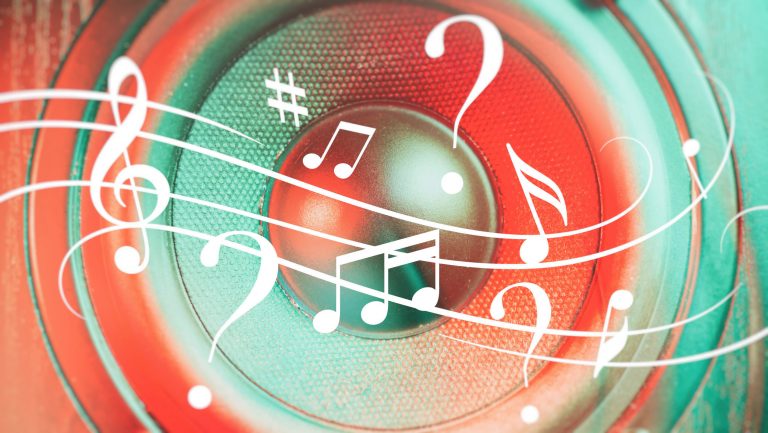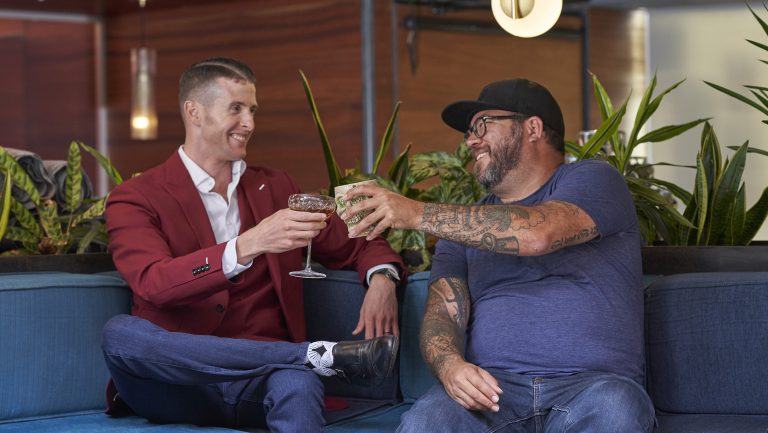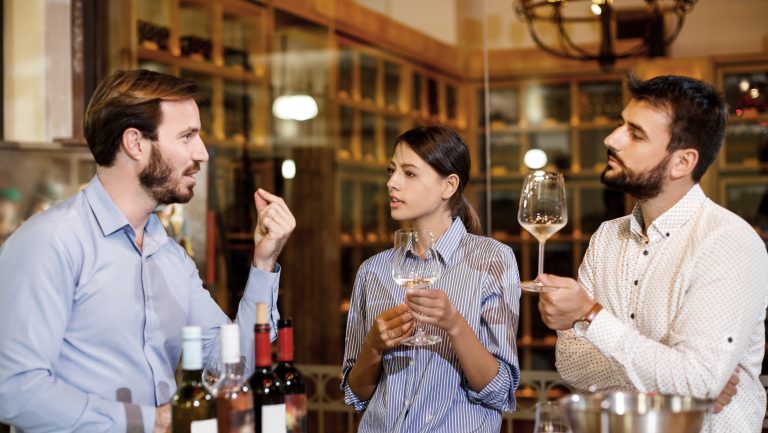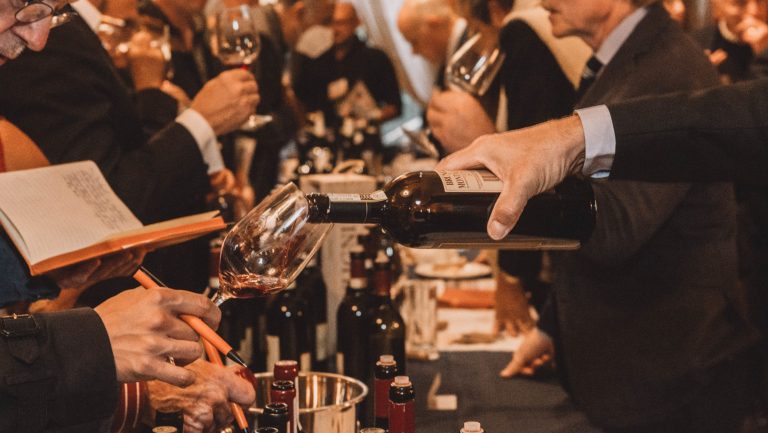In this digital age, we’re rich with torrents of content, as long as we’re within a wi-fi signal or carrying downloads. Much of this content is property, though, which is an immensely overlooked fact, especially where music is concerned. For the thousands of wineries, breweries, and bars treating their clientele to custom playlists, playing their favorite Spotify station in tasting rooms, taprooms, and other on-premise venues, or providing live music, there are strings attached—and they can be costly ones.
An increasing number of on-premise venues are being approached by performance rights organizations (PROs) like BMI, ASCAP, and SESAC for hosting live music or playing recorded music without legal permission. “This area has always been ripe, but the [music] industry really only started to enforce it in the last few years,” says Sheila Fox Morrison of Davis Wright Tremaine, a law firm based in Portland, Oregon, that employs approximately 500 lawyers in offices throughout the U.S. and China. “Restaurants went through a similar discovery period about 10 years ago.”
Morrison believes the biggest misconception involves streaming. “The copyright act provided for some carve-outs, or safety areas, when it was written, but that was back in the 1970s,” she says. In other words, there’s an exemption for radio broadcasting, but the music you might be playing via iTunes or Spotify needs to be licensed appropriately if played in a public space. “The risk is real,” she says. “It may be difficult to prove infringement, but with fines up to $35,000 per work infringed, and you’re playing many songs during a day—well, you do the math.”

Don’t miss the latest drinks industry news and insights. Sign up for our award-winning newsletters and get insider intel, resources, and trends delivered to your inbox every week.
Many streaming services, such as Pandora, offer business accounts that keep users compliant by means of subscription fees. Others, like Spotify or your iTunes library, technically demand special licensing if they’re played in a public space.
Morrison urges tasting rooms and taprooms, as well as restaurants and bars, to be proactive and get licensed, for their peace of mind. For those who are approached by PROs, Morrison advises clients to request proof of infringement and be responsive from the onset. Opening a true dialogue upfront will almost certainly lead to better licensing rates and minimal fines, if any.
“Intellectual property is tangible and, in fact, owned by somebody,” says Dan Spears, the vice president of industry relations at BMI. As the father of a 20-something, Spears jokes that he’s especially attuned to the complexities of content streaming.
He cites the importance of education and says that he’s recently been reaching out to more and more wineries and breweries and speaking to beverage alcohol employees at trade events all over the country. “The beer and wine worlds are full of very creative people,” Spears adds. “We try to connect with them and [help them] see musicians as beneficiaries. There’s a kinship there.”
Spears explains that BMI is a not-for-profit organization and that approximately 88 cents of every dollar it takes in goes directly to the artists BMI represents. (ASCAP also reports that it operates as a not-for-profit and distributes about 88 cents of every dollar collected back to its member artists.) The company—Broadcast Music Inc., founded in 1939—collected an estimated $1.13 billion in licensing fees last year and distributed nearly as much in royalties. Approximately 800,000 songwriters make up its sprawling roster.
“Songwriters are struggling mightily to make a living,” says Spears. BMI’s staff is lean but fiercely committed to its clients, he says, noting that the staff will actively pursue businesses when they are persuaded they need to. He encourages drinks industry professionals to engage with his firm or one of the growing number of locally affiliated trade organizations they’ve teamed up with to better understand their music broadcasting rights.
Both sides—the lawyers for the on-premise wine, spirits, and beer venues and the PROs—are teaming up with regional trade groups like the Oregon Winegrowers Association and national groups like WineAmerica and the Brewers Association to keep the beverage alcohol industry informed and operating in accordance with the law. These affiliations are part of a broader, drinks industry–wide effort to help tasting room and taproom managers, in particular, avoid receiving warnings and potential fines.
Tara Good of WineAmerica worked directly with BMI to create her organization’s Music Licensing Guidelines. She believes transparency is paramount and notes the importance of upholding consent decrees (mutually binding agreements between two parties that resolve a dispute), which essentially keep the PROs from jointly raising fees for on-premise venues. The potential for collusion among the PROs to raise fees, Good warns, could be heightened, depending on what direction the current U.S. government administration decides to go. “These consent decrees,” she says, “provide the only check against PRO collusion and price-fixing.” In 2016 the Department of Justice (DOJ) completed a two-year review of ASCAP and BMI consent decrees, she explains, and at that time, they determined that no modifications were warranted. “Despite that finding,” says Good, “the DOJ is currently considering terminating the ASCAP and BMI consent decrees.”
While it’s true, says Good, that the current music-licensing system lacks sufficient transparency for tasting rooms, taprooms, bars, and restaurants (they don’t always know what they’re getting when they purchase licenses from the PROs to play music in their establishments), it’s also true that “instances of harassment and other heavy-handed tactics by PRO representatives and take-it-or-leave-it demands by PROs have led many [on-premise venues] to drop live music altogether.”
Good and Spears both encourage tasting rooms and other on-premise outlets to contact their locally affiliated trade organizations to get additional information and to try to get discounted trade rates for any necessary licenses or memberships. The PROs offer annual subscriptions that protect businesses from legal harm, but as Good points out, the devil is in the details. “Wineries [and other venues],” she says, “need to know with 100 percent certainty which songwriters the PROs represent.”
5 Ways to Avoid Music-Related Warnings and Fines
1. Enroll in a business account through streaming services like Pandora or Apple Music. Some popular services, such as Spotify, do not offer business accounts, and it’s therefore illegal to use them in public domains like tasting rooms and restaurants. Radio is exempt and is perfectly legal.
2. For venues hosting live music, confirm that the musicians you’re hosting are properly licensed and/or affiliated with a PRO. For recorded artists in question, peruse the artist catalogues of PROs like BMI and ASCAP.
3. If you are approached by a PRO with a threatening letter or fine, ask that the PRO provide proof of the infringement.
4. Reach out to your locally affiliated beverage alcohol trade organization—such organizations are often in closer contact with the PROs and up to speed on any changes in broadcasting law.
5. Lobby your legislators for more transparency on behalf of the music industry through organizations like WineAmerica and the Brewers Association.

Dispatch
Sign up for our award-winning newsletter
Don’t miss the latest drinks industry news and insights—delivered to your inbox every week.
Mark Stock is a writer from Portland, Oregon, who is now based there. He spent a decade making, selling, and cleaning up wine in the Willamette Valley in between penning stories for a host of regional and national outlets. He adores Iceland, brown trout, aquavit, and grunge rock.







